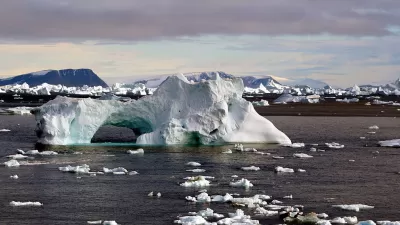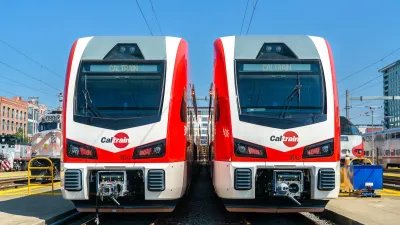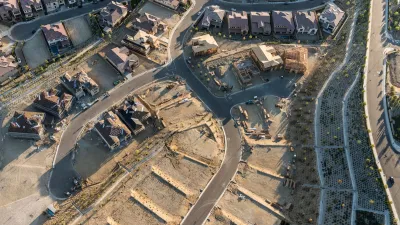Justin Gillis tags along with researchers who are trying to pinpoint just how much of the world's coastlines will be inundated by dramatically rising sea levels. By looking at historical records scientists are beginning to paint a grim picture.

Just how high can we expect global sea levels to rise in the coming decades due to global warming and melting polar ice?
"The question has taken on new urgency in the aftermath of Hurricane Sandy, which caused coastal flooding that scientists say was almost certainly worsened by the modest rise of sea level over the past century. That kind of storm tide, the experts say, could become routine along American coastlines by late in this century if the ocean rises as fast as they expect."
Gillis profiles the work of paleoclimatologists such as Maureen E. Raymo of Columbia University, who is leading a team of scientists studying climate history. "Their evidence that [greenhouse] gases represent a problem is based not just on computerized forecasts of the future, as is commonly believed, but on what they describe as a growing body of evidence about what occurred in the past."
"In previous research [PDF] ," notes Gillis, "scientists have determined that when the earth warms by only a couple of degrees Fahrenheit, enough polar ice melts, over time, to raise the global sea level by about 25 to 30 feet. But in the coming century, the earth is expected to warm more than that, perhaps four or five degrees, because of human emissions of greenhouse gases."
The next few decades could see the release of enough emissions to make dramatic sea level increases inevitable, resulting in a "humanitarian crisis lasting many hundreds of years."
"If the rise is slower than expected, society may have time to adjust, or to develop new technology to solve the problem of greenhouse emissions," says Gillis. "But many scientists are plagued by a nagging fear that the opposite will occur — that their calculations will turn out to have been too conservative, and social stability will eventually be threatened by a rapid rise of the sea."
“At every point, as our knowledge increases,” Dr. Raymo said, “we’ve always discovered that the climate system is more sensitive than we thought it could be, not less.”
FULL STORY: How High Could the Tide Go?

Manufactured Crisis: Losing the Nation’s Largest Source of Unsubsidized Affordable Housing
Manufactured housing communities have long been an affordable housing option for millions of people living in the U.S., but that affordability is disappearing rapidly. How did we get here?

Americans May Be Stuck — But Why?
Americans are moving a lot less than they once did, and that is a problem. While Yoni Applebaum, in his highly-publicized article Stuck, gets the reasons badly wrong, it's still important to ask: why are we moving so much less than before?

Using Old Oil and Gas Wells for Green Energy Storage
Penn State researchers have found that repurposing abandoned oil and gas wells for geothermal-assisted compressed-air energy storage can boost efficiency, reduce environmental risks, and support clean energy and job transitions.

Minneapolis Bans Rent-Setting Software
Four cities have enacted restrictions on algorithmic software that can inflate rent costs.

Oakland to Add 244 New EV Chargers
Oakland plans to launch its new charging network at eight locations by the end of 2025.

Jane Goodall Inspires with Message of Hope, Resilience, and Environmental Action
Speaking in Pasadena, Jane Goodall offered a hopeful and inspirational message, urging global compassion, environmental responsibility, and the power of individual action to shape a better future.
Urban Design for Planners 1: Software Tools
This six-course series explores essential urban design concepts using open source software and equips planners with the tools they need to participate fully in the urban design process.
Planning for Universal Design
Learn the tools for implementing Universal Design in planning regulations.
Heyer Gruel & Associates PA
City of Moreno Valley
Institute for Housing and Urban Development Studies (IHS)
City of Grandview
Harvard GSD Executive Education
Salt Lake City
NYU Wagner Graduate School of Public Service
City of Cambridge, Maryland





























